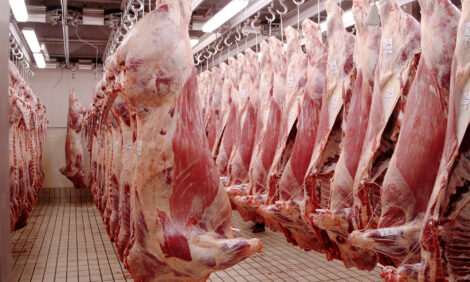



Cattle Industry Wary Of TB Threat
OKLAHOMA - Oklahoma's cattle industry retained its tuberculosis-free status despite a close call earlier this year, but positive tests in neighboring states have kept ranchers and inspectors on edge, a government veterinarian said Friday.Losing the TB-free certification could have cost the industry millions of dollars in mandated testing for several years.
"We were certainly concerned," said Rod Hall, a veterinarian who also oversees inspectors for Oklahoma Department of Agriculture, Food and Forestry. "We're trying to be very diligent."
"Everyone thought we had the disease whipped," he said. "We probably lost some diligence on checking."
Rod Hall, a veterinarian who also oversees inspectors for Oklahoma Department of Agriculture, Food and Forestry.
Two cows in a Cimarron County herd tested positive for TB last spring, according to reports. The federal government could have stripped Oklahoma of its TB-free designation if another confirmed case was found in another herd.
"It only takes two herds," Hall said.
No other positive tests were found despite 1,300 head of cattle checked in an adjoining herd, he said.
Oklahoma's cattle industry has been declared TB-free since 1984, and losing that status would have forced ranchers to test all or most cattle moving in and out of state.
Neighboring New Mexico is fighting the
possible loss of its TB-free status. Several dairy cows there have tested positive.
"They've got one herd down there with a pretty high rate of infection," Hall said. "They're testing all the other dairies in the state."
Colorado also had a herd with a TB infection, which puts even more pressure on Oklahoma ranchers and inspectors to do all they can to keep animals safe from the contagious bacterial disease.
Hall believes that Oklahoma and other states may be complacent victims of their own success in fighting TB.
"Everyone thought we had the disease whipped," he said. "We probably lost some diligence on checking."
Tuberculosis can spread to humans via breaks in the skin, through the air or in unpasteurized milk. The Cimarron County cases involved beef cattle, according to reports.
All 1,200 head of cattle in the Cimarron County herd had to be slaughtered and checked for TB, according to reports. No other cases were discovered, and the ranch operators reportedly were compensated for their loss.
The operation will have to be retested once the rancher has reassembled a herd, Hall noted.
"We just want to go back and be sure," he said.
TheCattleSite News Desk


